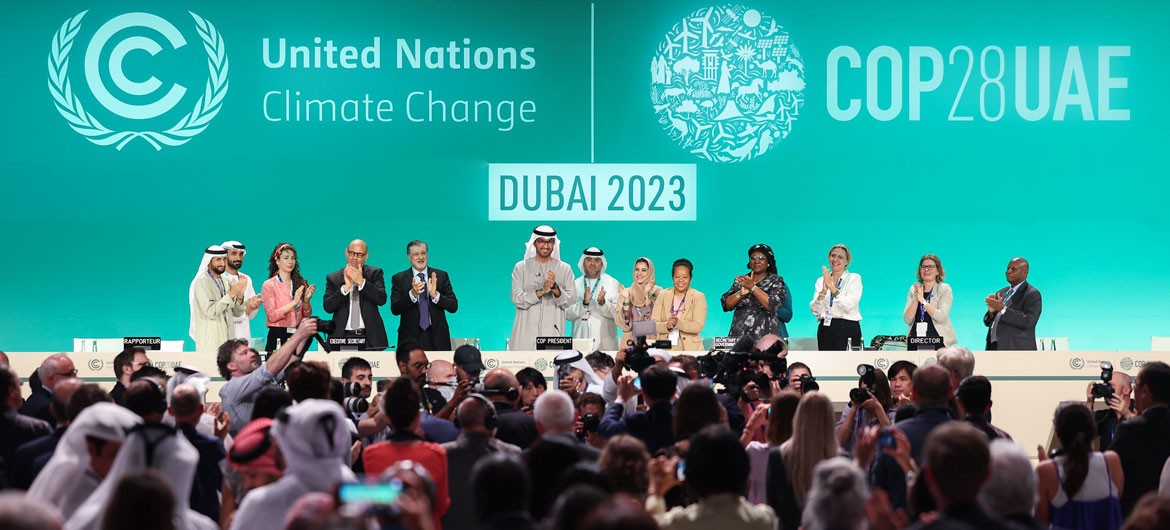|
Getting your Trinity Audio player ready…
|
Writes Dr. Richard Munang
Imagine our planet as a boat that all of us are sailing on together. Just like sailors who must work in unison to navigate the challenging seas, every country and person on Earth must pull together to steer our shared vessel toward safer waters.
At COP28, the world’s leaders came together like a crew deciding on the best course to avoid a storm. They made a plan to move away from the choppy seas of fossil fuels, and towards the calm waters of clean energy, like wind and sun, that won’t harm our boat. Think of fossil fuels like heavy, leaky buckets that have been weighing our boat down and causing it to take on water. Now, we’ve agreed to lighten our load and patch up the holes.
The final agreement at COP28 signals what many are calling the “beginning of the end” of the fossil fuel era. It lays the groundwork for a swift, just, and equitable transition that is underpinned by deep emissions cuts and scaled-up finance. The emphasis on a fair transition away from fossil fuels reflects a collective understanding that the shift must be inclusive, ensuring that no nation is left behind and that the energy transition is equitable for all. This agreement marks a significant step towards a safer future for humanity and sets a robust response to the #GlobalStocktake to steer global efforts towards a safer future.
This outcome demonstrates a unified demonstration of global solidarity, with negotiators from nearly 200 parties coming together to reach this historic decision.
The emphasis on a fair transition away from fossil fuels reflects a collective understanding that the shift must be inclusive, ensuring that no nation is left behind and that the energy transition is equitable for all. This agreement marks a significant step towards a safer future for humanity and sets a robust response to the Global Stocktake to steer global efforts towards a safer future.
In light of this outcome, countries are now tasked with incorporating strong targets into their national commitments to move away from fossil fuels, scale up renewable energy sources, and implement other measures that contribute to this transition. The decisions made at COP28 are expected to drive transformative development worldwide, particularly for those in the global south. It is now crucial that countries translate these policies into action and create an enabling environment to drive innovation and decarbonization at an accelerated pace.
The positive outcome from COP28 also underscores the necessity of transformational action across all sectors, not just any one sector, to tackle the climate crisis effectively. Calls to triple renewable energy, double energy efficiency, accelerate sustainable transport, transform the food system, and protect forests and nature are aimed at speeding up the transition to a climate economy that benefits people, nature, and the planet.
Additionally, the application of early warning systems to minimize hazards arising from pollution and climate change, along with matching risks to solutions and investment potential, are emphasized as ways to catalyze the uptake of climate action that also addresses nature and pollution.
In conclusion, COP28 has established a framework that is not just about reducing reliance on fossil fuels but also about creating opportunities through investment and innovation that can lead to protective and restorative actions for the planet. The message is clear: there is no room for despair, and together, there is a path forward to unleash the system-wide transformations needed to protect our planet for current and future generations.
